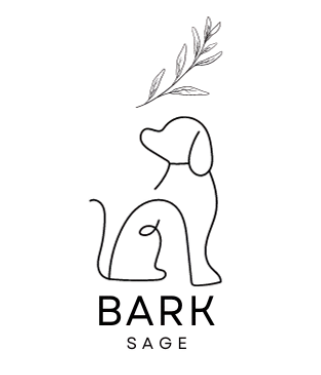
Introduction
Why Schnauzers Are The Worst Dogs? While Schnauzers are a popular breed, it’s essential to understand the potential challenges they may present. In this article, we will explore why schnauzers can be the worst dogs for some pet parents. Understanding these factors will help you make an informed decision.
Key Takeaways:
- Schnauzers’ high energy levels can be demanding for some owners.
- Their tendency to bark excessively may pose difficulties in certain environments.
- Their independent nature can make them challenging to train.
- Schnauzers’ protective instincts may lead to aggression towards strangers or other animals.
- Grooming their distinct coat requires regular maintenance.
Why Schnauzers Are The Worst Dogs
Schnauzers’ High Energy Levels
Schnauzers are known for their high energy levels and spirited nature. These active dogs require regular exercise and mental stimulation to prevent boredom and destructive behaviors. Pet parents must be prepared to provide ample opportunities for physical activity and engage their schnauzers in interactive play sessions.
Due to their high energy levels, schnauzers thrive in homes with active individuals or families who enjoy outdoor activities and can dedicate time to meet their exercise needs. A tired schnauzer is a happy schnauzer, so regular walks, runs, or playtimes in a secure, enclosed area are essential to keep them content and prevent behavioral issues.
Their spirited nature also means that schnauzers are up for any adventure and eager to participate in various activities, including agility training, obedience competitions, and even recreational sports like dock diving. Their love for action and interaction makes them great companions for individuals who seek an active lifestyle and enjoy involving their pets in their daily routines.
However, it is important to note that the high energy levels of schnauzers can pose challenges to some owners. If their exercise and mental stimulation needs are not adequately met, they may become frustrated and exhibit undesirable behaviors such as excessive barking, digging, or destructive chewing. Providing them with a daily routine that includes physical exercise and mental enrichment activities is crucial to keeping them happy and well-balanced.

Schnauzers’ Prone to Barking
Barking is a common trait among schnauzers. These vocal and alert dogs have a natural inclination to vocalize their thoughts and emotions, often through barking. Whether it’s to express excitement, warn of potential threats, or simply communicate their needs, schnauzers can be quite vocal.
It’s important to note that while barking is a normal behavior for schnauzers, excessive barking can become a challenge for their owners. Schnauzers may bark at various stimuli, including strangers, other animals, and even everyday noises. This constant barking can be disruptive and may cause tension in households or in residential areas where noise sensitivity is a concern.
Managing excessive barking can be a task that requires patience and consistent training. Owners need to understand the triggers that set off their schnauzers and work on redirecting their attention or providing appropriate outlets for their energy. Teaching commands like “quiet” or rewarding moments of calm can help mitigate excessive barking behaviors.
While schnauzers’ barking tendencies may present challenges, it’s important to remember that it is a characteristic of the breed. Understanding their vocal nature and implementing proper training methods can help foster a harmonious relationship between schnauzers and their owners.
Schnauzers’ Independent Nature
One of the defining traits of schnauzers is their independent and strong-willed nature. While this can be seen as a positive quality by some, it can also present challenges for pet parents who value obedience and trainability in their dogs.
When it comes to training, schnauzers may test the patience of even the most dedicated owners. Their stubbornness and independent streak make them less inclined to follow commands without question. This can make training sessions a bit more challenging, requiring a consistent and patient approach.
Schnauzers’ strong-willed nature also means they can be quite self-reliant. They may not always seek constant attention or affection, preferring to have their own space and make independent decisions. This can be appealing to pet parents looking for a dog that is not overly clingy, but it can also make them seem aloof or distant at times.
It’s important for owners to understand and embrace the independent nature of schnauzers. These dogs thrive when given opportunities to make choices and solve problems on their own. However, it’s crucial to strike a balance between allowing them independence and providing proper guidance and structure.
Schnauzers are highly intelligent dogs, and their independent nature can be a reflection of their intelligence and strong problem-solving abilities. By providing mental stimulation and engaging activities, pet parents can channel their independent streak into positive outlets, such as puzzle toys or obedience training games.
In summary, while the independent nature of schnauzers can be a challenge for some pet parents, it is also a fascinating aspect of their personality. Understanding and embracing their stubborn and self-reliant nature can lead to a rewarding and fulfilling relationship with these charismatic dogs.

Schnauzers’ Protective Instincts
Schnauzers are known for their strong protective instinct, making them excellent guard dogs. This instinct, however, can also create difficulties for some pet owners. Schnauzers can be territorial and exhibit aggression towards strangers or other animals.
It is important for owners to understand and manage their schnauzer’s protective nature. Proper socialization and obedience training are crucial to ensure that their protective instincts are channeled appropriately.
Schnauzers’ aloof demeanor, combined with their protective instincts, can sometimes make them appear distant or unapproachable. While this behavior can be misconstrued as unfriendliness, it is simply a manifestation of their natural instincts to guard and protect their loved ones and territory.
Dealing with Protective Schnauzers
Owners of schnauzers need to establish clear boundaries and teach their dogs appropriate behavior in different situations. This includes introducing them to new people and animals in a controlled manner, ensuring they understand that not every stranger is a threat.
Adequate exercise and mental stimulation are also essential for a well-balanced schnauzer. Engaging in activities that stimulate their senses and provide an outlet for their energy can help prevent their protective instincts from turning into behavioral problems.
Furthermore, early socialization and positive reinforcement training can play a pivotal role in shaping a schnauzer’s protective behavior in a positive way. Consistency, patience, and gentle guidance are key to nurturing a trust-based relationship with these loyal and devoted dogs.
Schnauzers’ Grooming Needs
Schnauzers have a distinct coat that requires regular grooming to ensure their overall health and appearance. Their signature wiry and dense fur can easily become matted and tangled if not properly maintained. To keep their coat looking its best, it’s important for pet parents to commit to regular grooming sessions.
The grooming routine for schnauzers typically involves brushing their coat at least once a week to remove any loose or dead hair and prevent matting. Additionally, they may require professional grooming every 6-8 weeks to trim their fur and maintain a neat appearance.
Regular grooming not only keeps their coat looking beautiful, but it also promotes good hygiene and skin health. The grooming process allows for a thorough inspection of the skin, helping to identify any potential issues such as dryness, irritations, or infections.
However, it’s essential to note that schnauzers’ grooming needs go beyond just their coat. They also need regular attention to their ears, teeth, and nails. Checking their ears for signs of infection or wax build-up, regularly brushing their teeth to prevent dental problems, and trimming their nails are all part of a comprehensive grooming routine.
Schnauzers’ high maintenance grooming requirements can be a challenge for some pet parents who prefer low maintenance dogs. The commitment to regular grooming sessions and potential professional grooming expenses should be considered before bringing a schnauzer into the family.
Reasons Why Schnauzers Are The Best Dogs
Tips For Schnauzers Owners
Conclusion
In conclusion, owning a schnauzer can be a rewarding experience for many pet parents. However, it’s important to be aware of the challenges that come with this breed. Schnauzers’ high energy levels require regular exercise and mental stimulation to keep them happy and prevent destructive behaviors.
Their tendency to bark at various stimuli can be a source of frustration for some owners. It’s essential to train them to control their barking and provide appropriate outlets for their alert nature.
Moreover, schnauzers’ independent and strong-willed nature may require extra patience and consistent training. Their protective instincts make them great guard dogs but can also lead to aggression in certain situations. Additionally, the grooming needs of schnauzers can be time-consuming and require regular maintenance.
It’s crucial to consider these factors and evaluate whether schnauzers align with your lifestyle and preferences as a pet owner. Remember, every dog breed has its unique traits and challenges, and it’s essential to choose a dog that suits your lifestyle and fulfills both your needs and theirs.


